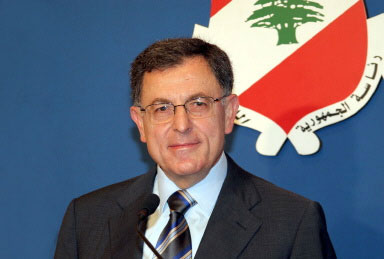Lebanon concerned over forged ID cards impact on elections
 Beirut - Lebanese authorities have expressed concern over the impact of forged identity cards discovered days before a crucial parliamentary election, local media reported Wednesday.
Beirut - Lebanese authorities have expressed concern over the impact of forged identity cards discovered days before a crucial parliamentary election, local media reported Wednesday.
The issue was raised by Prime Minister Fouad Seniora during an ordinary cabinet session on Tuesday night, local television citing governmental sources reported, referring to "dozens" of identity cards being in question.
Interior Minister Ziad Baroud said his ministry had "put its hand on the issue."
"We have taken strict measures and we will take even the most stringent measures to bring the situation under control," Baroud was quoted as saying, adding that he would "not to remain idle."
"Regardless of the number of forged identity cards, the culprits will not be able to use them," he said.
Lebanon is to hold parliamentary elections on Sunday June 7. Voting is expected to be tight in an electoral process pitting the current parliamentary majority of pro-Western anti-Syrian forces against the opposition led by the Shiite Islamist group Hezbollah.
Meanwhile, former US president Jimmy Carter arrived Wednesday in Beirut to head the international parliamentary elections observation delegation.
The Carter Center announced on April 12 that it would be deploying six long-term observers to cover the elections. The observers represent a diverse team from Portugal, Belgium, Iraq, Britain, Albania, and the United States.
The assessment of the observers will focus on the administration of the elections, the campaign period, voting and counting procedures and electoral complaints.
Kuwait Transparency Society President Salah Ghazali also announced on Wednesday that a delegation of 35 Arab monitors and experts, representing the civil societies of 17 Arab states arrived in Lebanon.
He added that the Arab monitors are to stay in Lebanon at least until June 10, and are to leave the country after the announcement of the election result and the release of an official statement by the Arab delegation about its observations.
Last month, the EU deployed around 90 personnel, including 30 long-term observers and 50 short-term observers, to supervise the elections. The team will be deployed across Lebanon, including areas under Hezbollah control.
The EU has already donated 4 million euros (5.2 million dollars) to help Lebanon reform its electoral law. The bloc is set to spend a further 4.7 million euros on the election monitoring mission.(dpa)